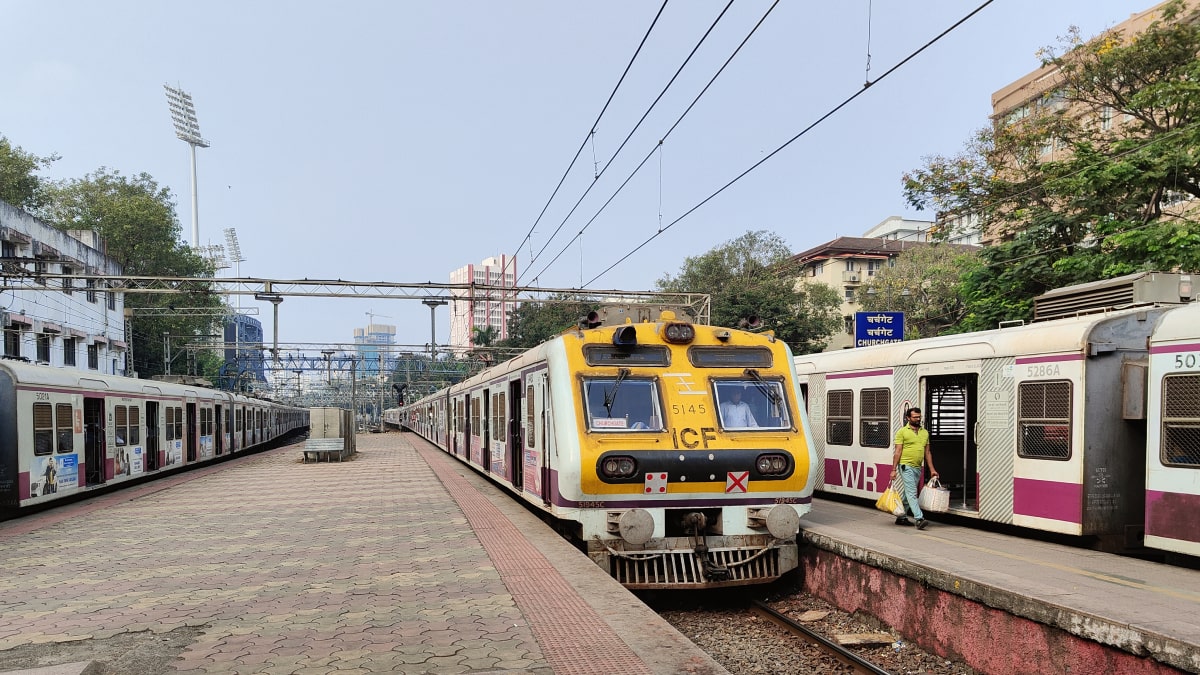Mumbai’s Local Train Network Set for Growth: 300 New Trains and Station Redevelopment Plans

Mumbai’s local train network, which serves millions of commuters every day, is on the brink of a massive transformation. With the Indian government approving several initiatives to enhance rail infrastructure, including the addition of 300 new local trains and several station redevelopment projects, the future of Mumbai’s rail services looks promising. These upgrades aim to improve connectivity, reduce congestion, and create a more comfortable travel experience for passengers.
In this blog, we’ll explore the key highlights of the new developments and how they will shape Mumbai’s local train network for years to come.
300 New Local Trains: A Boost to Mumbai's Rail Network
Mumbai's suburban railway network, one of the busiest in the world, will shortly be expanded with 300 more trains. This major boost to the fleet will significantly enhance the capacity and efficiency of the local train system. These new trains will reduce overcrowding, offer more frequent services, and improve the overall experience for passengers traveling in Mumbai.
With millions of daily commuters relying on Mumbai’s local trains, this expansion will be a game-changer, ensuring smoother travel and better time management for office-goers, students, and tourists alike. Whether you're traveling from Lokmanya Tilak Terminus (LTT) to Mumbai Central or heading toward other vital stations like Bandra Terminus or Kalyan Station, the added trains will help ease the strain on the existing services.
Station Redevelopment Plans: Making Commutes More Comfortable
Along with the addition of new trains, the redevelopment of key railway stations is also on the agenda. The goal is to modernize stations and improve passenger facilities, making them more user-friendly, accessible, and comfortable. Some of the major stations to undergo redevelopment include:
- Lokmanya Tilak Terminus (LTT): As one of the busiest railway stations in Mumbai, LTT is set to get an upgrade with better amenities, modern infrastructure, and improved accessibility.
- Mumbai Central Railway Station: With its strategic location, Mumbai Central will witness enhancements to streamline operations and boost capacity.
- Bandra Station: As a crucial station for local and long-distance trains, the redevelopment of Bandra Station will focus on increasing its capacity, improving passenger flow, and providing modern amenities.
- Kalyan and Parel Railway Station: Known for its high commuter traffic, Kalyan and Parel stations will see improved infrastructure to cater to the growing number of passengers.
Improved Rail Connectivity for Enhanced Passenger Experience
The addition of 300 new local trains and station upgrades are part of a larger plan to enhance rail connectivity in the Mumbai Metropolitan Region (MMR). The redevelopment will aim to reduce congestion at major railway junctions and facilitate smoother travel across the city.
The introduction of air-conditioned trains on certain routes will also improve the travel experience for passengers, offering relief from Mumbai’s sweltering heat. In addition, the development of new railroad stations will ensure that commuters can easily access trains from more locations, reducing travel time and increasing convenience.
Focus on Sustainability and Efficiency
The proposed upgrades to the Mumbai local train network also align with the broader goal of enhancing sustainability. By increasing the frequency of local trains and improving railway zone operations, these upgrades will help reduce the reliance on road transport. This will lead to lower traffic congestion, reduced CO2 emissions, and better air quality in the city.
The new multi-tracking projects and the development of a mega rail terminal in Vasai are expected to reduce logistical costs, increase the movement of goods, and improve overall transport efficiency. The focus on railroad stations and railway train tickets integration will streamline operations and make the entire travel experience more seamless.
Key Projects in the Pipeline
Several key projects will drive these changes forward:
- New Terminals at Jogeshwari and Vasai: The Vasai terminal is envisioned as a mega rail hub to cater to suburban and long-distance trains, easing the load on existing stations.
- Mumbai–Prayagraj–Varanasi Corridor: The proposed multi-tracking projects on this corridor will ease congestion on some of the busiest sections, particularly between Mumbai and Prayagraj. These projects will enhance rail services and boost the region’s economic growth.
- Bhusawal–Khandwa 3rd and 4th Line Project: This project will enhance connectivity to northern and eastern parts of India, reducing travel time between Mumbai railway stations and destinations in Uttar Pradesh and Bihar.
Impact on Mumbai’s Local Train System
The new developments will significantly improve Mumbai’s suburban railway system, increasing the comfort, frequency, and reliability of services. Commuters will benefit from:
- Shorter waiting times due to increased train frequency.
- Reduced overcrowding during peak hours.
- Enhanced railway station facilities, including modern waiting areas and improved sanitation.
The Mumbai local train network will become more efficient, accessible, and user-friendly, improving the daily commute for millions of people.
Future Prospects: A Vision for Modernizing Mumbai’s Railways
These projects are part of a vast plan to upgrade Mumbai’s railway network and to develop it as one of the smart railway systems in the world. The cooperation between the state and central governments and Indian Railways will strengthen and improve the rail network and meet the demands of the city’s population.
The current enhancements will also help in enhancing rail connectivity for locations including Parel, Panvel Railway Station, Kalyan Station, Parel and Bandra Terminus, which will improve the transportation of passengers and goods. This will be very vital in the development of the city and its economic growth.
Dated December 7, 2024

.png)
